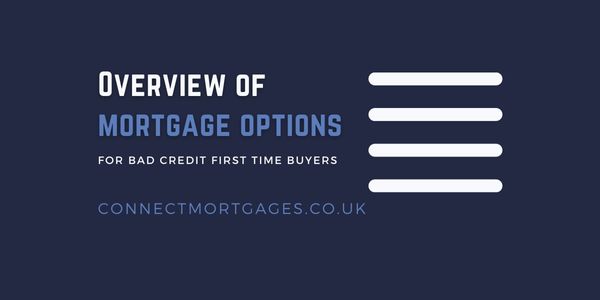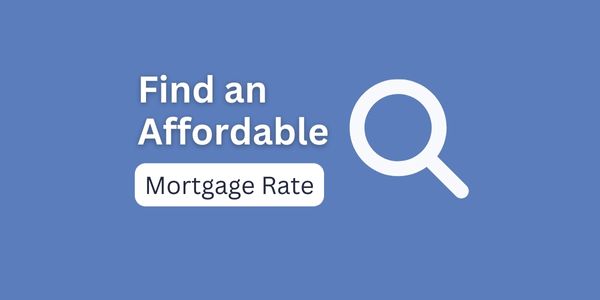Mortgage for Bad Credit First-Time Buyers | Buying your first home should feel exciting, but for many first-time buyers, past credit issues can quickly turn that excitement into uncertainty. A missed payment, an old default, or a period of financial difficulty can make homeownership feel out of reach. This is a situation many first-time buyers face, and it does not always mean a mortgage is impossible.
A mortgage for bad-credit first-time buyers is designed for people whose credit history does not meet standard high-street criteria. Some lenders specialise in assessing applications where credit issues exist, taking a more flexible view of affordability, income, and personal circumstances. With the right guidance, a first-time buyer mortgage may still be achievable, subject to lender criteria and affordability checks.
Working with a mortgage broker can make a significant difference. A broker experienced in bad credit mortgages understands which lenders are more likely to consider your application and how to present your case clearly. This approach can help first-time buyers explore specialist lending options that are not always available directly from mainstream lenders.
What is bad credit?
Bad credit usually refers to a low credit score. This can happen when someone has missed payments on loans, credit cards, or household bills.
Your credit score may be affected by several factors. These include missed payments, high levels of borrowing compared to available credit, and legal actions such as court judgments.
All of these issues can reduce your credit rating and make borrowing more difficult.
You may be classed as having bad credit if you have experienced any of the following:
- High levels of unsecured debt
- A recent bankruptcy
- Missed or late repayments
- Defaults on credit agreements
- A County Court Judgement CCJ
In the UK, your credit history is recorded by three main credit reference agencies:
- Experian
- Equifax
- TransUnion
Each agency uses its own data and scoring method. However, they all aim to provide lenders with a fair view of your overall creditworthiness.
Mortgage Options for Bad Credit First-timeBuyers

Mortgage options for bad-credit first-time buyers vary by lender and mortgage type. Having bad credit can make it harder to secure a mortgage compared to someone with a strong credit history. This is because lenders may view you as a higher risk. Poor credit can also limit access to lower interest rates. Improving your credit profile may help increase the range of mortgage products available to you.
Some high-street banks may decline applications from buyers with poor credit. However, specialist lending options may still be available. A mortgage broker experienced in bad-credit mortgage cases can assess your situation and identify lenders willing to consider your application.
Understanding credit scores and mortgage approval
Your credit score plays a key role in mortgage approval. It is a numerical summary of your borrowing history and payment behaviour.
Lenders use credit scores to assess risk. A higher score usually indicates a lower risk of missed repayments.
When reviewing an application, mortgage lenders also consider:
- Your payment history
- The amount of outstanding debt
- The number of active credit accounts
These factors help lenders decide whether a mortgage is affordable and suitable.
How to improve your credit score
If you have been declined for a mortgage, improving your credit score before reapplying may help.
Improving your credit profile takes time. Negative markers such as CCJs, defaults, and bankruptcies can remain on your credit file for up to six years.
If your credit position allows, an Agreement in Principle may be helpful. This involves a soft credit inquiry and indicates how much a lender may be willing to offer.
A soft check is visible on your file, but it does not affect future mortgage applications.
Steps that may help improve your credit score include:
- Registering on the electoral roll
- Checking your credit report for errors
- Paying bills on time
- Addressing any fraud markers
- Reducing outstanding debts
- Closing unused credit cards or accounts
Improving your credit score does not guarantee mortgage approval. However, it may increase your chances of being selected when you apply again.
Find an Affordable Mortgage Rate

Finding an affordable mortgage rate is important for bad-credit first-time buyers. It is advisable to compare mortgage products from different lenders. Key factors to consider include interest rates, deposit requirements, mortgage term length, and associated fees.
Mortgage rates can change over time. A mortgage broker can help you review suitable options based on your circumstances and plans.
Why is it Harder to Get a Mortgage with Bad Credit?
Obtaining a mortgage with poor credit can often be more difficult because it may give lenders the impression that you could have difficulty paying it back. This poses a problem for borrowers and financial institutions that provide mortgages, as borrowers may be unable to repay the loans. When you apply for a mortgage, the lender will almost immediately check your credit rating to assess your eligibility.
A low score can be an immediate deterrent, preventing you from securing or delaying approval of your loan application. The process may take slightly longer if you are searching for a mortgage and have less-than-ideal credit. Lenders will likely request additional financial information before approval to ensure that you are equipped to make consistent repayments on your loan.
You may think that having bad credit would disqualify you from getting a mortgage, but many lenders consider more than just your score. Even if there have been minor missteps in the past, such as missing one or two payments on your phone bill, you should not be prevented from obtaining financing for homeownership.
When considering mortgage options for bad-credit first-time buyers, it is vital to note that the pool of lenders you can choose from will be limited for the reasons outlined.
Find a Mortgage Broker who Specialises in Advverse Credit Mortgages

Working with a mortgage broker who understands bad credit cases can be beneficial.
A mortgage broker has access to a wide range of lenders and mortgage products. This includes specialist lenders not available directly to consumers.
They can provide tailored mortgage advice and help identify suitable bad credit mortgage options based on your financial position.
Using a mortgage broker may also save time and reduce the risk of applying to unsuitable lenders.
Getting a decision in principle
If you are aware of adverse credit issues, obtaining a decision-in-principle can be helpful.
A decision in principle gives an early indication of how much a lender may be willing to offer, subject to full checks.
It can help first-time buyers understand their budget and narrow down property searches.
A decision in principle does not guarantee mortgage approval, but it can provide clarity before submitting a full application.
Understanding your deposit requirements
Knowing your deposit budget is an important part of the mortgage process.
Different mortgage products require different deposit levels, especially for bad-credit first-time buyers.
Understanding how much you can put down helps narrow your mortgage options and supports better financial planning.
Having a clear deposit plan can also help avoid overstretching your finances.
Thank you for reading our “Mortgage for Bad Credit First Time Buyers | Connect Mortgages” publication. Stay “Connect“-ed for more updates soon!







